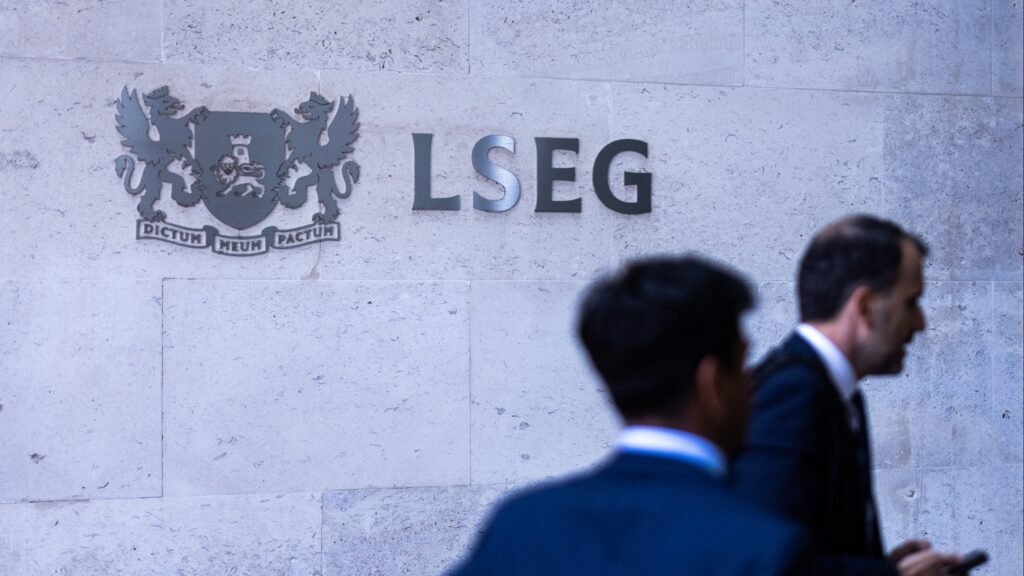UK asset managers and corporate finance advisers say they are optimistic about London’s listings market after Shawbrook confirmed its intention to float in November.
The digital banking group’s announcement came three days after tinned food producer Princes Group also confirmed its plan to go ahead with an initial public offering. Both would follow The Beauty Tech Group’s IPO on the London Stock Exchange in October, which saw the company raise £106.5mn.
“It’s encouraging to see more than one meaningful listing emerging,” says Simon Moon, a fund manager at Unicorn Asset Management, which specialises in UK equities.
“[It] feels like the beginning of a real reopening, rather than a one-off event. Confidence will build if these deals are priced sensibly and trade well after listing.”
The number of IPOs in London has been on the decline. Figures from the London Stock Exchange show there were 17 in 2024, down from 23 in the previous year and 45 in 2022.
But the macroeconomic backdrop has improved, says Moon, with interest rates on a downward path and inflation forecast to be at 2.5 per cent in 2026, according to IMF estimates.
“These conditions should give investors more confidence to back growth, and provide companies with greater visibility on earnings,” he says.
“Stability will determine how far the market can reopen, but the conditions are much more constructive than they were a year ago.”
A stronger 2026
Describing how IPO activity on the LSE remained “subdued” in the third quarter of this year, EY-Parthenon says a stronger IPO pipeline for the first half of 2026 suggests confidence is returning to the UK’s equity markets.
Samantha Harrison, a director in Grant Thornton’s public company advisory team, also says “all indications” point to a stronger start to next year compared with 2025.
A reversing of historically low interest rates since the global financial crisis that benefited private equity, and a greater focus on allocating capital to UK companies, could improve the outlook for London IPOs, she adds.
“Shawbrook’s confirmation of its IPO in November will provide a much-needed fillip to market sentiment.
“These IPOs show the range of sectors which the UK is investing in, and the variety of businesses being attracted to London,” says Harrison, also citing Princes, The Beauty Tech Group and accountancy firm MHA’s listing in April. “There are corporate carve-outs, founder-led businesses and private equity exits all covered.”
Abby Glennie, a co-manager of the abrdn UK Smaller Companies Growth Trust, describes Princes’ (whose major shareholder is listed on the Milan stock exchange) decision to float on the LSE as a “strong endorsement” of the UK market.
“Based on our recent engagements, we are optimistic about the current cohort of companies considering UK listings,” she says. “The range of business models and sectors is diverse, spanning both domestically focused and internationally exposed companies.”
Shawbrook’s expected listing, meanwhile, marks its return to the public market after a private equity-led consortium acquired the bank in 2017. The IPO will be made to institutional and retail investors.
With Shawbrook being privately owned, a successful listing would encourage other private equity owners to consider the IPO route, says Charles Hall, head of research at Peel Hunt, an investment bank.
Shawbrook’s planned IPO: key takeaways
-
The bank intends to float on the main market on November 4.
-
The price range for its IPO would value the company at about £1.8bn-£2bn.
-
Around one-fifth of the company’s shares (approximately 18 per cent to 21 per cent) is expected to be held in public hands after its admission to the LSE.
Retail investors ‘becoming integral’
The inclusion of retail investors in Shawbrook’s IPO is also a positive signal, says Unicorn fund manager Moon. “Retail participation broadens ownership, improves liquidity and helps reconnect individual investors with UK equities.
“If more issuers follow, it will strengthen London’s ecosystem and send the message that this market is open to everyone, not just institutions.”
Retail offerings have been a consistent theme in IPOs for the past few years, says Harrison from Grant Thornton.
“Retail participation is an increasingly important element of an IPO and for ongoing liquidity, and we see these becoming an integral part of IPO practice in the UK.
“The relaxations coming through for Aim and main market IPOs in January on the inclusion and size of the retail offering will play an important role here.”
The Financial Conduct Authority has made new prospectus rules in a bid to reduce barriers to retail investors participating in capital raising. These include providing companies with more flexibility on their prospectus summary, which the regulator says may make it easier for retail investors to read and understand.
The upcoming changes in January come after the FCA overhauled listing rules in July 2024. At the time, it said these marked the “biggest changes to the listing regime in over three decades” and aimed to support a wider range of companies to issue shares on a UK exchange.
Government action ‘needed’
Regulatory changes in the past few years have ensured the UK is an attractive listing venue, says Hall from Peel Hunt. While describing the pipeline of potential IPOs as encouraging, he adds that action from the government is needed to ensure these companies list in London.
With tax rises anticipated in the Budget on November 26, Harrison from Grant Thornton says the UK’s fiscal regime has a larger impact on Aim activity, which offers tax reliefs to investors.
“Erosion of inheritance and capital gains tax benefits available on Aim, particularly for founder-led businesses, could depress smaller UK businesses looking at an IPO,” she says.
“There have been calls to remove the stamp duty from the main market entirely, to attract and retain listed companies on the LSE. This would be welcomed and do much to encourage listings in London.”
Chloe Cheung is a senior features writer at FT Adviser

